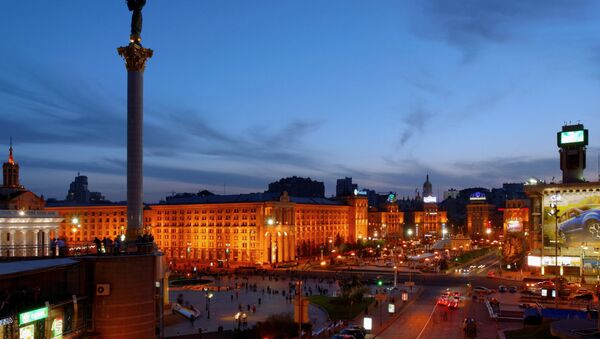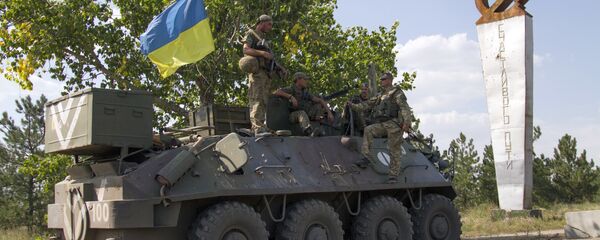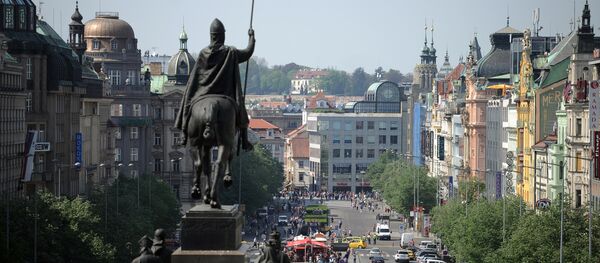Goncharenko, who has been accused in Russia of helping to organize the violent events of May 2, 2014, when far-right activists in Odessa, Ukraine blocked anti-Maidan protesters inside the city's House of Trade Unions and set it on fire, killing 48 people, made his comments about 'studying' Switzerland's model on the occasion of Swiss National Day, which commemorates the foundation of the state, on August 1.
"There is no other country in the world where the beauty of nature is so harmoniously complemented by the beauty of the country's social order," the politician wrote. "26 independent regional associations, speaking four languages, constitute one of the most sound nations in the world. I think you will agree, this is an example worth emulating," the politician wrote, in a blog entry on the Ukrainskaya Pravda website.
The lawmaker suggested that the issue of political decentralization "is a question of crucial importance for Ukraine today. The Swiss experience of coexistence with multilingual people from multiple cultures united by the ideas of peace, social and economic freedoms is deserves a full investigation and accurate implementation in our country."
Furthermore, Rodionov added, "it is also worth noting that President Petro Poroshenko, and his parliamentary bloc, to which Mr. Goncharenko belongs, have from the beginning of their term in office been in favor of the country's unitary structure and categorically against federalization."
In fact, "the word 'federalization' is virtually taboo, and those who speak about its necessity are usually categorized as 'separatists' and enemies of Ukraine. The charge of 'separatism' is brought even against the timid requests of local councils asking for the economic and cultural autonomy of the country's regions. In the same way, those who declare the need to make Russian the second state language are similarly categorized 'enemies'; the most radical among the nationalists even call the Russian language 'an instrument of occupation'."
Asked to comment on Goncharenko's comments, and on whether Ukraine really can take a lesson from the Swiss confederacy's model of state organization, Alexander Vasilyev, a former representative on the Odessa City Council, said that unfortunately, this is highly unlikely.
"Given the realities of today's Ukraine, I think that the experience of Switzerland is less applicable to our country than that of Bosnia. The latter is a territory in which a confederation was formed following a civil war; its legitimacy and sovereignty is entirely dependent on support from the Western powers."
Furthermore, Vasilyev suggested that "the window of opportunity for Ukraine's reorganization [along federal lines] continues to shrink."
"Before the war, I was among those who actively promoted Ukraine's consideration of the experience of successful federal states like Germany, Canada, and Switzerland. Now, as I've said, Bosnia has the most relevant experience for our country. But it seems that no one is any hurry to adopt even this variant."
Effectively, he suggested that for him, "it makes no sense to talk about some single will of Ukraine as a country, looking for one or another path of development. If such a will existed, we would not be here discussing the experiences of Bosnia or Switzerland. One part of Ukraine wants into [the EU-based] Europe, another into Russia, and Ukraine itself is not needed by either of these groups. The nationalists in principle do not conceive of things rationally; their desire for European integration is like a religion – a kind of political sect, and one which is destructive."
For his part, Russian-Ukrainian political commentator Viktor Shapinov suggested that the Swiss model could be applied if one cultural and linguistic group did not attempt to impose its will on others by force. "Unfortunately," he noted, "there are no forces in modern Ukraine that could put in force such a policy of consensus."





